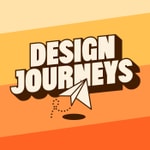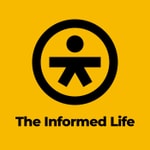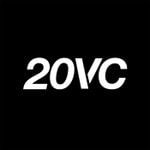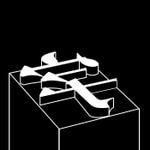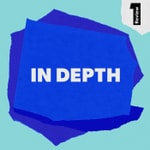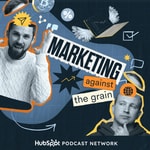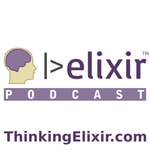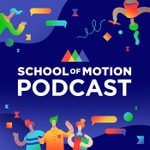Method Podcast from Google Design – Details, episodes & analysis
Podcast details
Technical and general information from the podcast's RSS feed.
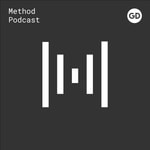
Method Podcast from Google Design
Google Design
Frequency: 1 episode/30d. Total Eps: 30

Recent rankings
Latest chart positions across Apple Podcasts and Spotify rankings.
Apple Podcasts
🇩🇪 Germany - design
31/07/2025#69🇩🇪 Germany - design
30/07/2025#55🇩🇪 Germany - design
29/07/2025#37🇩🇪 Germany - design
28/07/2025#24🇩🇪 Germany - design
27/07/2025#17🇨🇦 Canada - design
17/07/2025#92🇨🇦 Canada - design
16/07/2025#80🇨🇦 Canada - design
15/07/2025#69🇨🇦 Canada - design
14/07/2025#54🇨🇦 Canada - design
13/07/2025#46
Spotify
No recent rankings available
Shared links between episodes and podcasts
Links found in episode descriptions and other podcasts that share them.
See all- https://www.figma.com/
268 shares
- https://gsuite.google.com/
47 shares
- https://firebase.google.com/
41 shares
RSS feed quality and score
Technical evaluation of the podcast's RSS feed quality and structure.
See allScore global : 52%
Publication history
Monthly episode publishing history over the past years.
Maggie Stanphill, Digital Wellbeing
jeudi 14 novembre 2019 • Duration 26:38
Maggie Stanphill, Director of UX at Google talks about her efforts in Digital Wellbeing.
How this became a focus in the tech industry, and what is Google doing to contribute?
I hope you enjoy the episode.
Google UX Interns
mardi 17 septembre 2019 • Duration 29:16
Garrett Tolbert, Andrea Davila, and Alex Lim talk to us about life as a Google UX intern.
In this episode, we talk with a trio of UX interns with three very different paths to Google: What led them to their internships? How their experience has changed them. What’s next in their UX journeys?
Handy links for this episode:
Learn about internships at Google
Meet our guests:
Garrett Tolbert – UX Engineering intern at Google
Andrea Davila – UX Writing intern at Google
Alex Lim – UX Research intern at Google
Google UX Confessions
Episode 20
mardi 8 janvier 2019 • Duration 22:19
From inventing fictitious calendar entries to incorporating personal photos in design mocks, listen in to Google designers’ deepest design confessions. In this episode, host Travis Neilson and a panel of Google UX designers discuss and reflect on their peers’ anonymous confessions and offer insight on important topics, quirky habits, and design struggles that don’t often get airtime.
Meet our panel:
Simon Pan is a senior interaction designer at Google working on Google News. Before joining Google, he was a senior designer at Medium, Uber, and Amazon music.
Brynn Evans is a UX lead at YouTube, currently overseeing the YouTube Living Room platform. Evans is also the co-founder and organizer of Hexagon, a monthly meetup for women in UX.
Hector Ouilhet leads design for Google Search and Assistant products. Previously he worked on multiple products at Google, MIT Media Lab, and HP.
Do you have a burning question for a designer at Google? Or a story you’d love to hear? Give us feedback in this short survey to help make the show even better.
Peter Jin Hong & Scott Wasson, Google Job Search
Episode 19
mardi 4 décembre 2018 • Duration 35:40
In this episode, host Travis Neilson interviews two UX designers at Google—Peter Jin Hong and Scott Wasson—discussing the impact of Google Search and how the newly launched Job Search feature is changing the job-seeking landscape. They cover everything from the effect of transactional memory on job hunters to the importance of qualitative research when making UX decisions. Listen in as they talk behavioral science, soft skills, and identity to illustrate how empathy affects the experience of a product like Job Search.
A few highlights:
On fostering empathy
“We can truly help humanity if we know what makes us tick, what makes us scared, what makes us inspired, what makes us push ourselves. [Looking for a job] is one of the scariest things in your life—it’s about having agency, and dignity, the ability to stand tall, and feed your family.” – Peter Jin Hong
On being reliable
“We want users to be able to trust the jobs that we’re showing them, especially now that we’re getting into recommendations. It affects people’s psyche.” – Scott Wasson
On data-driven design
“Good qualitative research is helping our great quantitative research. It’s also referred to as thick data, because qualitative research allows depth in really understanding what people are going through.” – Peter Jin Hong
Do you have a burning question for a designer at Google? Or a story you’d love to hear? Give us feedback in this short survey to help make the show even better.
Margaret Lee, UX Community & Culture at Google
Episode 18
mardi 13 novembre 2018 • Duration 27:48
In this episode, host Travis Neilson interviews Margaret Lee, a UX director at Google, about her journey to leadership and explorations of diversity and inclusion in the workplace. Lee shares personal vignettes—including the career stories of her immigrant parents, and stewarding the opinionated nature of her young daughter—to discuss her own path to becoming a “reluctant leader.” Listen in to hear how Lee found a healthy balance between meeting performance expectations at work and being her authentic self.
On culture fit in the workplace
“We talk so much about culture and the importance of culture, but if we have a fixed perspective on what that culture means, then we're just perpetuating the same problem of lack of diversity. When we talk about culture fit, a lot of times what we're talking about is the culture that we're comfortable with… and that doesn't lead to diversity of thought, that just leads to reinforcing what already exists.”
On listening to learn
“We usually just listen to fix the situation because we're hired to fix things. But when we're doing that, all we're doing is collecting information to hone in on a solution, but you can't do that if you don't understand the situation. And that's where the listening to learn comes in.”
On making more team connections
“I don't think anybody is just one dimension. We have our dominant tendencies and then we have areas that we should be stretching into. And if everyone is willing to stretch thirty percent beyond their natural abilities, we'll make a lot more connections with each other.”
Do you have a burning question for a designer at Google? Or a story you’d love to hear? Give us feedback in this short survey to help make the show even better.
August de los Reyes of Google Search, Assistant, and News
Episode 17
mardi 16 octobre 2018 • Duration 30:05
In this episode, host Travis Neilson interviews August de los Reyes, a UX director at Google, about considering a product’s cultural equity—its noneconomic and nonfunctional benefits—and how that influences a user’s state of being. De los Reyes also touches on everything from game and car design to the Eames’ Powers of Ten to illustrate how zooming in and out of designed systems can help bridge the gap between the designer’s intent, the functionality of a product, and the user’s emotional response. A few highlights:
On the challenge of elegant design
“Elegance is complexity described in a simple way... I don't think simplicity is an end in itself. There can be things that are simple but not engaging or valuable. On the flip side, there are things that are just too complex to be meaningful. Where design can add value is through elegance—taking complex systems or complex ideas and presenting them in a very simple way.”
On the power of cultural equity
“What helps drive a consumer towards one car rather than another? I’d argue that it’s neither its functional or economic value, but rather its cultural equity. And what generates that cultural equity is design.”
On what designers can learn from video games
“The interaction of game design is so well crafted, down to painstaking detail at the mechanical level. It's my hope that we can bridge that kind of care and thoughtfulness into other kinds of software.”
Handy info and links for this episode:
- Google’s G-suite is a collection of cloud-based productivity software, products, and tools developed to enhance collaboration.
- HBO’s Silicon Valley is an American comedy series about a computer programmer and his friends establishing a startup company in Silicon Valley.
- Christopher Alexander’s Notes on the Synthesis of Form published in 1964 centers around the process of design and inventing new ways to “display physical order.”
- The best-selling video game series in history, Super Mario was created by Nintendo and designed by Shigeru Miyamoto. The iconic games follow Mario’s adventures in the fictional Mushroom Kingdom.
- Learn more about the Mechanics-Dynamics-Aesthetics (MDA) framework, an analytic tool developed by game designers Robin Hunicke, Marc LeBlanc, and Robert Zubek.
- The two Powers of Ten films, written and directed by Charles and Ray Eames, depict the relative scale of the Universe based on a factor of ten.
August de los Reyes is a UX director in the search and assistant organization at Google, where he leads an effort called Ecosystem UX. Before joining Google he was head of design at Pinterest and Microsoft Xbox.
Illustrators at Google
Episode 16
mercredi 19 septembre 2018 • Duration 28:23
In this episode, host Travis Neilson interviews a trio of Google illustrators creating images to inform and delight millions of people around the world. Designer Mat Helme shares insights from his work creating the guidelines for Google’s product illustrations. Motion Designer Laura Dumitru talks about her creative process and the animations she designed for the new Pixel startup sequence. Doodler Hélène Leroux shares the story of her illustrations for Back To The Moon—a Google doodle about filmmaker Georges Méliès, and the first doodle to be nominated for an Emmy.
A few highlights:
On what makes a good product illustration
“Immediate comprehension.” — Mat Helme
On the hierarchy of words and images
“It's a bit of a competition sometimes, between illustration and copy. We’ve learned that a lot of the time, if you have an animation, people just don't read the copy. It's something we always need to be careful with.” — Laura Dumitru
On the magic of Google doodles
“The logo of a company is normally something untouchable. If you have the freedom to replace the logo with, oh, a dragon who's burning the letters, it's something that you've never seen before. It brings a lot of fun to the brand.” — Hélène Leroux
Handy info and links for this episode:
- “Principles Not Platitudes” is an essay written by Google UX Researcher Jess Holbrook, arguing in favor of measurable and meaningful design principles.
- Back To The Moon is the first Google doodle to be nominated for an Emmy for Outstanding Original Interactive Program. Honoring French director Georges Méliès, the short film was directed by Hélène Leroux and Fx Goby. It was produced by Nexus Studios.
- Go behind-the-scenes of Back To The Moon in this video by the doodle team and Google Spotlight Stories.
Mat Helme is a Palo Alto-based visual designer and the lead designer of Google’s product illustration rulebook.
Laura Dumitru is a Google motion designer based in London. Her current work includes illustration and animation for the Pixel phone.
Hélène Leroux is an animator, designer, art director, and film director based in San Francisco. She is currently on Google’s doodle team.
Jens Riegelsberger of Google
Episode 15
mardi 21 août 2018 • Duration 22:40
In this episode, Travis Neilson interviews Jens Riegelsberger, a UX Director at Google, about the company’s evolving design identity. Riegelsberger discusses his role in launching Google’s Product Excellence program—an initiative that sets the bar for quality and usability across all Google products—and what it means to build teams that favor multiple perspectives and diverse skillsets.
A few highlights:
On being a good leader
“Look at your job as chiefly to enable other people's insights and eureka moments. That doesn't mean abdicating responsibility. It takes actually quite a bit of work to do this well.”
On embracing healthy friction
“Frankly, we can't have a static, preordained culture because we work in a field where so much change is happening all the time. So knowing that we all have to negotiate culture and that it's a fluid thing prepares us well for the changes that are coming.”
On the value of “dabbling”
“I have a PhD in computer science, but I also taught at art school. So there's this mix of different identities that I’ve had to cobble together. I’ve never deeply believed, ‘Okay, this worldview is the only true worldview; my science or my community knows how it's done,’ because I've always jumped around.”
Handy info and links for this episode:
- Riegelsberger co-authored this whitepaper on a 2013 project aimed at increasing empathy for users. Over the last five years, the project has helped more than 1,500 Google engineers, designers, and product managers immerse themselves in observational research.
- Product Excellence is a Google initiative, started in 2014, that’s working to identify and solve systemic barriers to excellence—by focusing on the user. Download a PDF of the principles to guide your own work.
- Google co-founders, Larry Page and Sergey Brin, developed the company’s first Pagerank algorithm in 1996 at Stanford.
- Global UX research is a rapidly growing field. Here are 10 strategies used by Google’s international research team to build empathy and impact for the next billion users.
Ryan Powell of Waymo
Episode 14
mardi 24 juillet 2018 • Duration 23:29
In this episode, Aidan Simpson interviews Ryan Powell, Waymo’s Head of UX Design, about the company’s Early Rider Program and the challenges of designing during a technology paradigm shift. Plus, Powell unpacks the thinking behind how his team decides what details to include in the car’s interfaces so they foster trust with users. A few highlights:
On the challenge of replacing human drivers
“I think there's some number out there that says more than half of all communication is nonverbal. When you don't have that human in the driver's seat, how do you recreate the [nonverbal] communication that takes place?”
On building trust with the passenger
“I think there’s a fine line between providing the user with just the right amount of information versus overloading them or being intrusive. We think a lot about when we should try to draw your attention out of what you're doing in the car versus providing ambient information that's available in case you glance up and want to see something.”
On the value of quick prototyping
“What's nice about the way that Waymo works is that my team and the engineers all sit very, very close together. We're able to try ideas and get something into the vehicle on a weekly basis. We're able to get out and just hop in the car right outside the door, go for a test drive, and try something out.”
Handy info and links for this episode:
- Waymo’s Early Rider Program: Launched in Phoenix in 2017
- Waymo 360: An interactive 360 degree video showing a self-driving car’s POV
- Kitt: A self-driving car from the classic 1980s TV series Knight Rider
Ryan Powell is head of UX at Waymo, formerly Google’s self-driving car project. Before joining Google’s UX Leadership team in 2014, Ryan worked for Samsung, Microsoft, and Motorola developing consumer product experiences.
Conor O'Sullivan of Google Pixel
Episode 13
lundi 25 juin 2018 • Duration 21:20
In this episode, Aidan Simpson interviews Google Sound Design Lead Conor O’Sullivan about the nuances of crafting product sounds and the choices that shape everything from notification pings to haptic feedback. The conversation also covers the elements that make up Google’s sonic branding, including resolving G chords and piano music. A few highlights:
On the value of sonic subtlety, 9:31
“I do think your goal as a sound designer is to provide feedback that doesn’t jump out too much. It sounds very counterintuitive—you’re designing sound that you don’t want to be heard—but in a lot of cases, it makes sense.”
On working with a multidisciplinary team, 15:57
“We have a team of writers—the UX content team—and they’re absolutely awesome at naming our ringtones. They really capture the feeling of the sound. Our default notification sound is called Popcorn. It’s such an awesome name for that sound. If you’re to imagine what popcorn sounded like musically, you’d pick something like that.”
On using sound to build a brand, 10:22
“I really think about creating sound as creating a soundscape. You want to be able to tell a story from end to end.”
Conor O’Sullivan is a sound designer and composer originally from Ireland, now based in San Francisco, CA. Conor is best known for his work in the emerging field of sound design for consumer products, including interface sounds for the Google Pixel phone.
